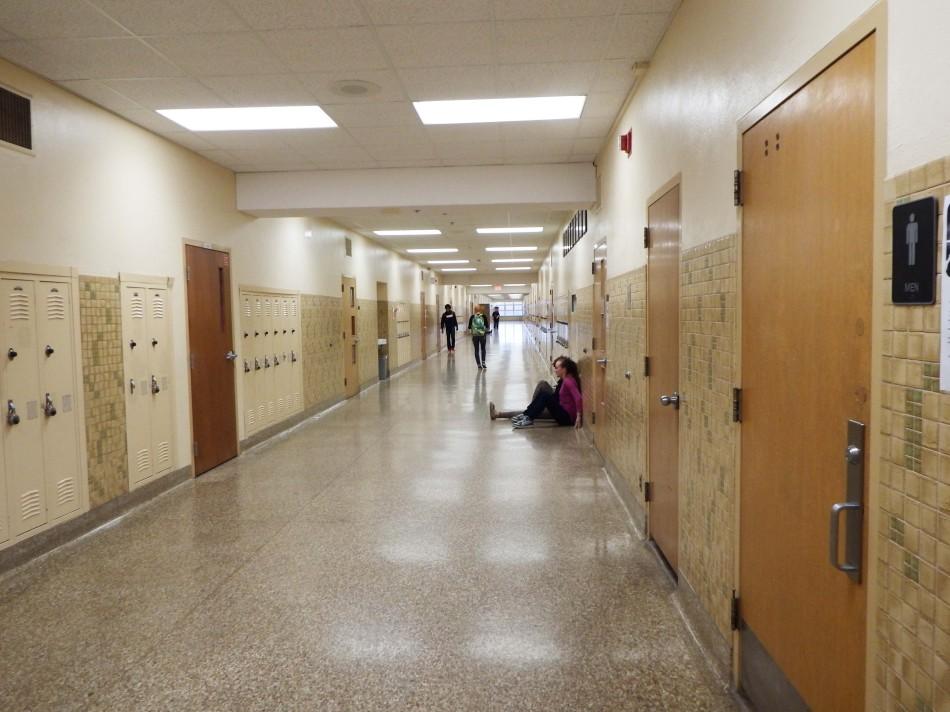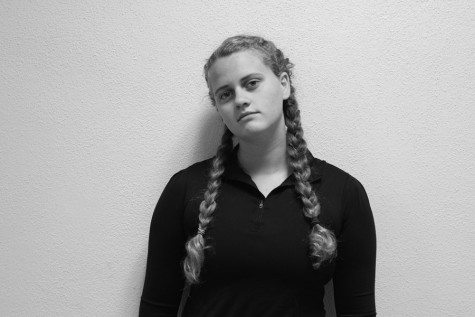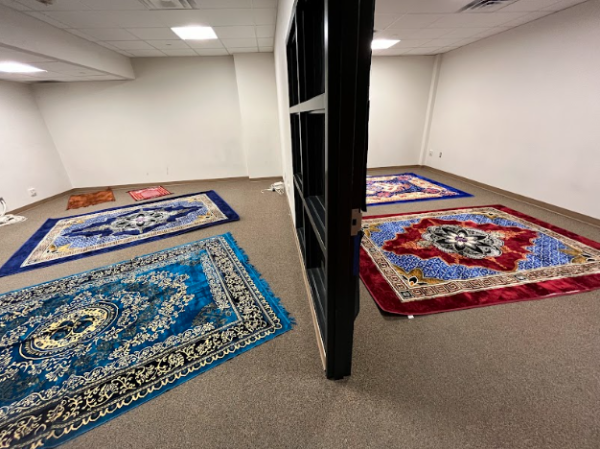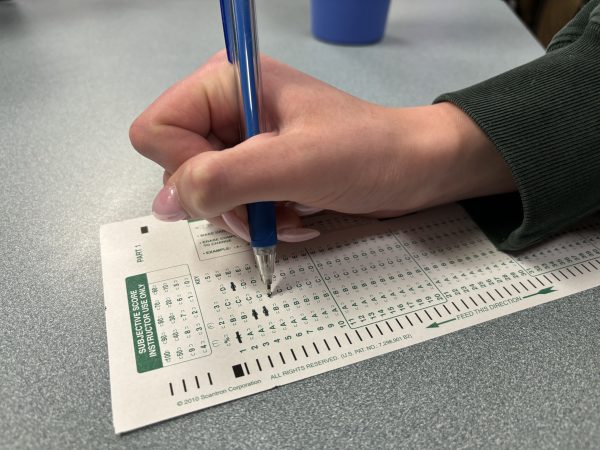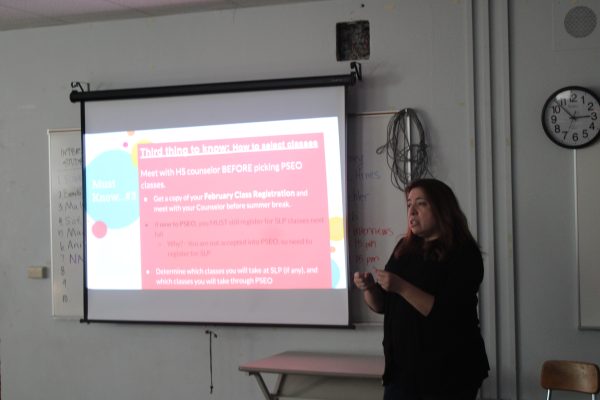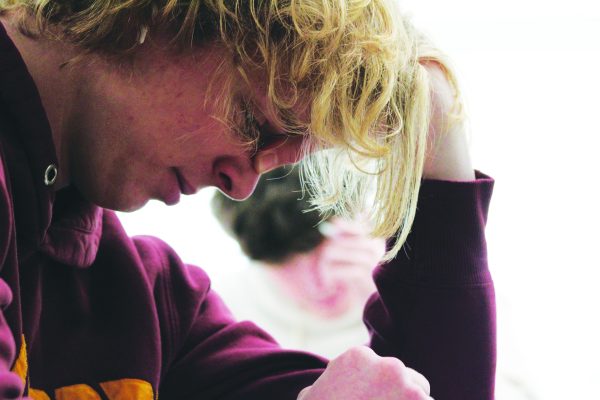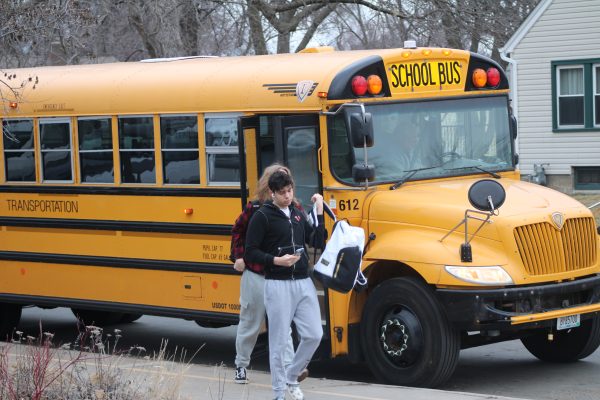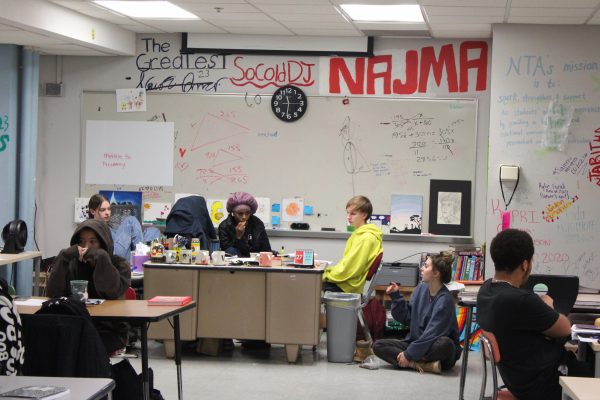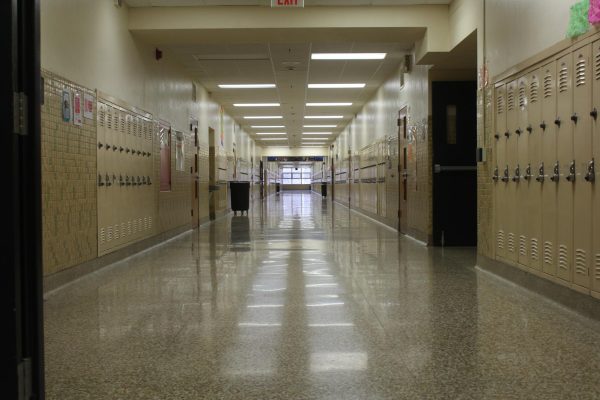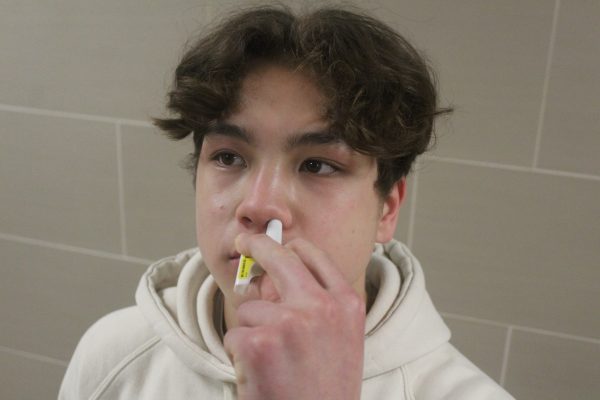Committee creates new rule for hallway
Teachers asked to not issue passes for the first, last 15 minutes of class
The hallways remain fairly empty after the new bathroom policy was put into effect April 7.
April 30, 2014
School administration implemented a new rule for passes, which disallows students from getting passes for the first and last 15 minutes of class.
The new rule, which began April 7, aims to reduce the number of tardies and students in the hallway during class.
Before spring break, Principal Joann Karetov organized two meetings for teachers’ voices to be heard.
“Teachers were upset with the number of kids in the hallway during class and how many have been late as of lately,” Karetov said.
According to Karetov, the committee feels students staying in class during the class period is crucial to their learning and must get into good habits of getting to class.
“Class is the students’ jobs right now,” Karetov said. “They need to get into the practice of good routines.”
Sophomore Mikey Segal said he sees the new rule as beneficial to academics.
“I think it’s is smart, because it forces kids to stay in class which is really important,” Segal said.
Freshman Amira Stone said she feels the rule is unnecessary and restrictive.
“I don’t think the rule is helping with giving kids enough time to go to the bathroom or get stuff from their locker because they are already so rushed with passing time being as short as it is,” Stone said.
Freshman Ronald Brown said he feels the rule helps decrease the number of students skipping class altogether.
“It’s not as easy for people to skip or come late to class because they can’t say they are in the bathroom,” Brown said.
The rule decreases the number students in the hallway during class according to security personnel Kiki Christensen.
“I’ve seen less kids in the hallway during class time since the rule came into effect,” Christensen said.
The rule’s long-term impact is yet to be seen. Staff plan to revisit the rule in the future.
“Sometimes you try things and they don’t work. We are completely looking at best practice,” Karetov said.



